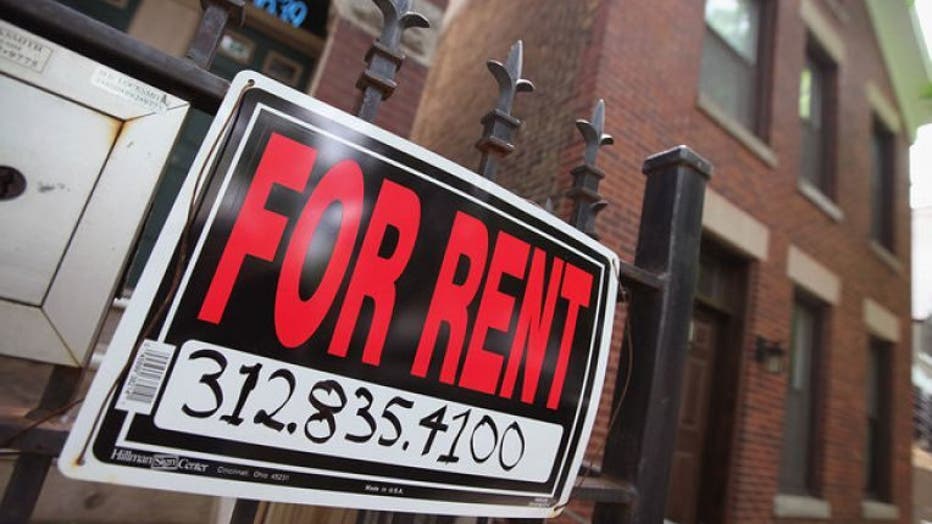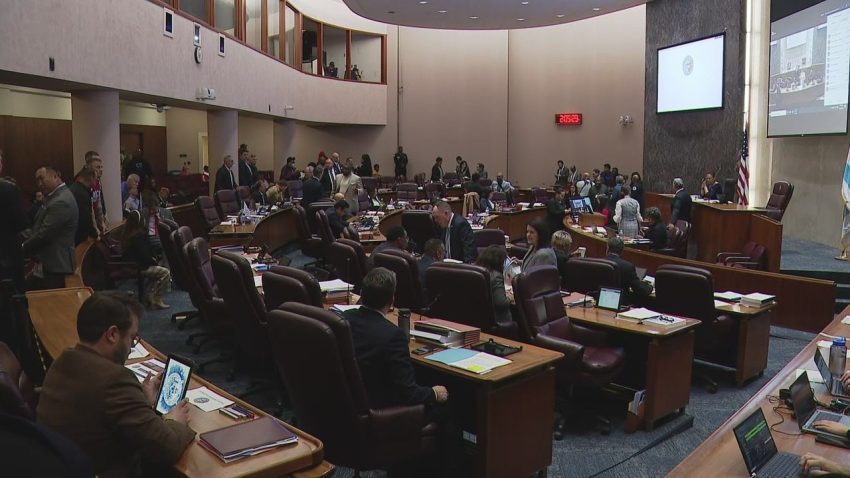CHICAGO – The Chicago City Council voted to approve several plans on Thursday, including an Obama Center deal, plans to build a new Chicago Fire stadium, and a plan to allow more accessory dwelling units in an effort to expand affordable housing.
The vote for affordable dwellings came after aldermen agreed to a compromise plan to allow residents to build or convert their property into ADUs. Some alders wanted more say in whether such housing would be allowed in their own wards.
Obama Center deal:
The City Council also voted to approve the Jackson Park Housing Pilot, a combined ordinance that would protect current residents around the proposed Obama Presidential Center being priced out due to the rising rents and property values surrounding Jackson Park. The ordinance would reserve some area lots for affordable housing development, as well as a fund to assist people who are having trouble with the rising values.
The ordinance covers the area bounded by 60th St. to the North, Dr. Martin Luther King Jr Dr. to the West, South Chicago Ave to the Southwest, 71st St. to the South, and South DuSable Lake Shore Dr to the East and encompasses portions of the 5th, 6th & 20th wards.
“South Shore and Woodlawn residents deserve to be able to stay in their neighborhood to benefit from the Obama Center and future development – not to be pushed out and replaced,” said Dixon Romeo, Executive Director of Southside Together. “The Jackson Park Housing Pilot is a major win towards proving that we can have development without displacement by protecting renters, homeowners, and condo-owners alike. Now, we will continue to fight for the rest of South Shore and to implement what we’ve won.”
RELATED: Chicago City Council to weigh granny flats, Obama Center deal, new Fire stadium
Chicago Fire stadium:
City Council also approved the zoning that would allow the Chicago Fire to build a brand new $750 million soccer stadium on the prime piece of real estate known as “The 78,” which is bordered by the Chicago River, Roosevelt Road, Clark Street, and Chinatown to the south.
The stadium will be completely privately funded by Fire owner and Chairman Joe Mansueto. Construction will begin in early 2026 for an opening at the start of the 2028 MLS season.
“We’re grateful to have received City Council’s approval for our new stadium, a transformative project that will anchor Chicago’s newest neighborhood, The 78,” President of Business Operations for Chicago Fire FC Dave Baldwin said. “This will be the first major stadium built in Chicago in three decades, and it’s being delivered entirely through the private investment of our owner, Joe Mansueto. His vision and commitment will give our Club a world-class home while creating a year-round sports and entertainment destination for the entire city. Beyond Chicago Fire matches, the stadium will attract global concerts and events, creating thousands of jobs, fueling economic growth, and driving new energy into the South Loop. We’re grateful to the residents, community members, and public leaders whose support and input have shaped this project. With their partnership, we remain on track to open in time for the 2028 MLS season. This is more than just a stadium – it’s a catalyst for the growth of both our Club and Chicago. We look forward to taking the next steps in this exciting journey and continuing to invest in the future of our great city. We’re just getting started.”
RELATED: New Chicago Fire stadium earns key approval from city panel
‘Granny flats’:
Proponents of the plan argue that adding ADUs, which can include coach houses, garden apartments, attic or basement units converted to rent out, can provide for more affordable housing in the city amid rising housing costs.
Ald. Bennett Lawson (44th Ward), who pushed for allowing more ADUs, and Ald. Marty Quinn (13th Ward), who blocked the measure at a July City Council meeting, announced a compromise plan earlier this week to bring up at Thursday’s meeting.
The new ordinance would allow individual aldermen the choice of opting into allowing only a certain number of ADUs in their ward per block per year.

Quinn argued for more aldermanic power over expansion to preserve the makeup of majority single-family neighborhoods like those in his ward.
“The opt-in, I think it gives a lot of respect to the landscape of our city,” he said. “We’re a collection of 77 separate neighborhoods, and it’s not a one-size-fits-all scenario, and so giving the community, like for example the 13th ward, the ability to have a voice as to how this is going to take hold means a lot to me.”
Quinn said the housing in his ward is about 95% single-family dwellings, and it’s “sort of busting at the seams.” So he said the already high density leads to complaints from residents about a lack of parking, garbage, rats, and overcrowded schools.
Another addition to the new ordinance was a provision to require the applicant or the contractor to be associated with an apprentice program, which Quinn said is a way to involve organized labor.
“This is to build on our apprentice programs and to protect that label that we so often proudly display of Chicago being a great union town,” he said. “You can’t be a great union town if you bring organized labor on the curb when you’re talking about a new construction market.”
RELATED: Chicago aldermen reach deal on proposal to allow more ‘granny flats’ in city

